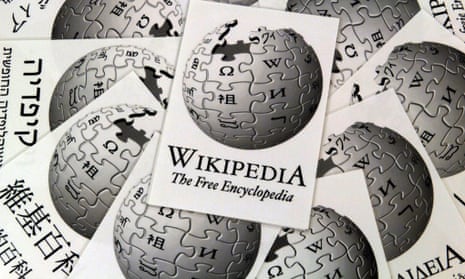Nearly half of all edits to articles about places on Wikipedia were made from just five countries, researchers at the University of Oxford have found.
The UK, US, France, Germany and Italy are the source of 45% of the edits on “geocoded” Wikipedia articles, which have a longitude and latitude associated with them to link them to a specific place in the world.
And the Netherlands alone – which doesn’t even fit in the top ten countries by number of edits – still has more edits to its name than all of Africa combined.
The researchers, led by Dr Mark Graham from the university’s Oxford Internet Institute, argue that the study shows that “local voices rarely represent and define their own country”. Instead, high-income countries have a disproportionately loud voice on the crowd-sourced encyclopedia, so countries that have many Wikipedia editors can “dominate the production of knowledge about smaller countries”.
They looked specifically at articles about places to focus on the “uneven geographies of participation”. It may be tricky to argue where an article about theoretical physics should be edited from, but there is no debate over whether or not the editor of an article about a location in Nairobi is local if they aren’t based there.
To make matters worse, of the small number of edits that do come out of poorer countries, many are about Europe and North America, further entrenching the knowledge dominance of the developed world over the content of Wikipedia entries.
Graham said that: “Even on Wikipedia, widely touted as one of the web’s most open and most inclusive platforms, we see that low-income countries are represented far less than locations that are economically advantaged. Europe and North America, with already high levels of internet access have the loudest voices and they largely define the world view of even the smaller, less affluent countries rather than the people who live in them.
“In practice, we see how existing inequalities and imbalances don’t just make places invisible, but also suffocate certain voices and perspectives. Even those in less economically advantaged places are drawn to write online about places that are already highlighted in a bright glow of information production.”
Where possible, the researchers looked at data from every one of the 300-plus languages Wikipedia is written in. But even the inclusion of editions such as the Sotho, Xhosa and Fijian Hindi can’t overcome the bias amongst the userbase.
Wikipedia has long been fighting to tackle a lack of diversity among its pool of editors, which frequently filters through to the choice of articles created and expanded. The Royal Society, one of Britain’s oldest scientific institutions, holds an annual “edit-a-thon” in an attempt to redress the site’s gender imbalance.
The events are having an effect: in the four years they’ve been run, the Royal Society has run out of female fellows to create articles for, having to move on to more obscure female scientists such as 18th-century illustrators Sarah Stone and Maria Sibylla Meriam. Even so, the event is little more than a drop in the ocean. By most estimates just one in 10 of Wikipedia’s editors are female, even though its readership is split 50-50.
Similarly, fewer than 1% of Wikipedia editors self-identified as trans in 2011, and the site has been criticised for creating a hostile terrain for those editors. Most recently, a heated row broke out when WikiLeaks source Chelsea Manning came out as trans, which eventually led to multiple editors being banned from editing pages related to trans issues.

Comments (…)
Sign in or create your Guardian account to join the discussion